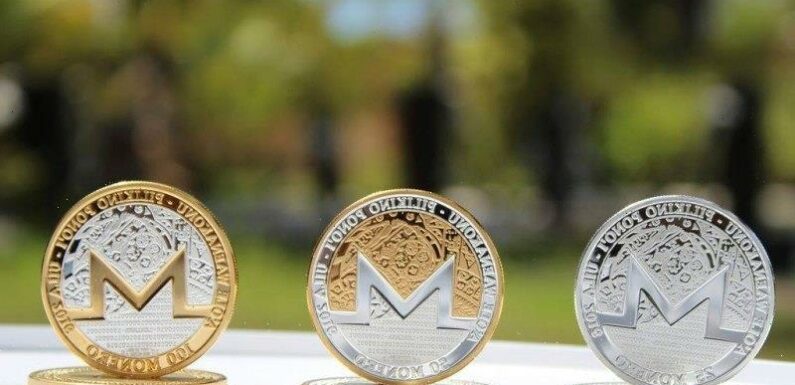
When an anonymous person posted on a message board last week, claiming to have broken into Optus’ servers and extracted a huge haul of personal information, they asked for a million dollars to make the problem go away. Specifically, they asked for a million dollars worth of the cryptocurrency monero.
For many this may have been the first time they’d heard of monero, the favourite digital coin of the nefarious denizens of the internet. That’s because monero, launched in 2014, is a secrecy-focused cryptocurrency, also known as a private coin.
Monero is designed to obfuscate the value, sender and receiver of all transactions.Credit:Monero
Though not fundamentally illicit, and not illegal in most countries, it’s an ideal way to send and receive money for goods and services you’d rather keep hidden from law enforcement. Monero, like bitcoin, uses a public ledger. But it utilises privacy-preserving technology to make both the transaction history and the amount held by each person untraceable.
Professor Barney Tan, head of UNSW’s school of information systems and technology management, said monero’s untraceablility is based on three main capabilities.
First, sending money to a monero wallet will look like it is going to multiple wallets on the blockchain. Only the sender and the receiver will know where the money was actually sent.
Second, 10 decoy sources of funds are mixed in with the real source in every transaction, making it very difficult to tell which is the actual source being used.
And third, a cryptographic algorithm known as the Pederson Commitment does not allow anyone other than the sender and receiver to know how much monero was exchanged in a given transaction.
“These features have made it very difficult to know where the money is sent, where the money is coming from, and how much is actually exchanged. You can probably see why this would be very attractive for criminals and people looking to engage in illicit activities,” Tan said.
“Of course, like all other cryptocurrencies, monero can be used for legitimate purposes as well. But because it is less mainstream than bitcoin and ethereum, my view is that the two main reasons for acquiring monero currently are speculation and illicit activities.”
“No one is acquiring monero to buy groceries,” he added.
There were reportedly more than 9 million transactions on the monero blockchain between March 2021 and March 2022.
The secretive properties of monero has put it on the radar of financial regulators. Governments and law enforcement agencies have expressed concerns that the technology involved not only makes transactions impossible to monitor, but means the wallets involved can’t even be isolated and frozen if illicit activity is known.
Even when it comes to legal speculation, it’s difficult for authorities to check how much has been bought and sold, making it challenging to tax investors. Though that hasn’t stopped America’s IRS from trying.
In Australia, local cryptocurrency exchanges do not offer privacy coins like monero, though they are not outright banned like they are in China, India and Japan. Professor Tan said that’s likely to remain the case.
“A ban of some form is certainly possible. The question is if there is an appetite to do it, and so far, the Australian government hasn’t been quite as drastic or draconian in terms of regulating cryptocurrencies,” he said.
“The approach of the Australian government seems to be focused on putting pressure on the cryptocurrency exchanges instead. It is still possible for investors and users to acquire [Monero] via other means.”
Get news and reviews on technology, gadgets and gaming in our Technology newsletter every Friday. Sign up here.
Most Viewed in Technology
From our partners
Source: Read Full Article
